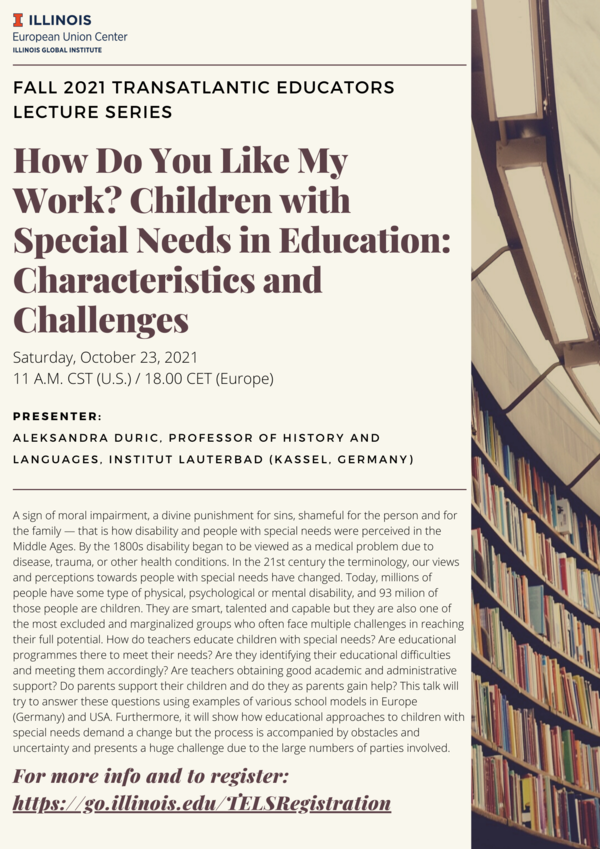How Do You Like My Work? Children with Special Needs in Education: Characteristics and Challenges (Transatlantic Educators Lecture Series)

- Sponsor
- European Union Center
- Registration
- Registration
- eucenter@illinois.edu
- Views
- 139
A sign of moral impairment, a divine punishment for sins, shameful for the person and for the family — that is how disability and people with special needs were perceived in the Middle Ages. By the 1800s disability began to be viewed as a medical problem due to disease, trauma, or other health conditions. In the 21st century the terminology, our views and perceptions towards people with special needs have changed. Today, millions of people have some type of physical, psychological or mental disability, and 93 milion of those people are children. They are smart, talented and capable but they are also one of the most excluded and marginalized groups who often face multiple challenges in reaching their full potential. How do teachers educate children with special needs? Are educational programmes there to meet their needs? Are they identifying their educational difficulties and meeting them accordingly? Are teachers obtaining good academic and administrative support? Do parents support their children and do they as parents gain help? This talk will try to answer these questions using examples of various school models in Europe (Germany) and USA. Furthermore, it will show how educational approaches to children with special needs demand a change but the process is accompanied by obstacles and uncertainty and presents a huge challenge due to the large numbers of parties involved.
This presentation will be given by Aleksandra Đurić, a Professor of History and Languages with 16 years of experience working in different type of schools and universities in Europe. She currently works with migrant and displaced children and children with disabilities in Germany. She knows there is no single approach that works for everyone, so she continues to educate herself and enjoys learning from fellow educators. Teaching, helping and working with children is her passion.
This event is part of the European Union Center's Transatlantic Educators Lecture Series, a series of virtual presentations by teachers for teachers that launched in Fall 2020. Presentations in this series explore education-related issues that are tied to a local and/or national context. Register here to attend the Fall 2021 series.